Imagine that after a lovely weekend, you start up your car to go to work but hear a knocking noise coming from the engine. Once the engine runs for about a minute or two, the sound goes away by itself.
In such cases, you may have asked yourself why my engine knocked on startup and then goes away.
Engine knocking on startup is a common issue, but it could indicate some serious problems.
Usually, engine knocking happens due to excessive carbon buildup, worn-out engine parts, piston slapping, etc.
In this article, you’ll find the reasons why an engine may knock, as well as how you can resolve them. Let’s get started!
Reasons Why My Engine Knock on Startup Then Goes Away – How to Resolve Them
There could be several reasons why an engine starts knocking. But if it happens every time you start your vehicle, you should get it resolved without delaying too much.
With that being said, here are the most common causes of an engine knocking −
Carbon Buildup in Engine
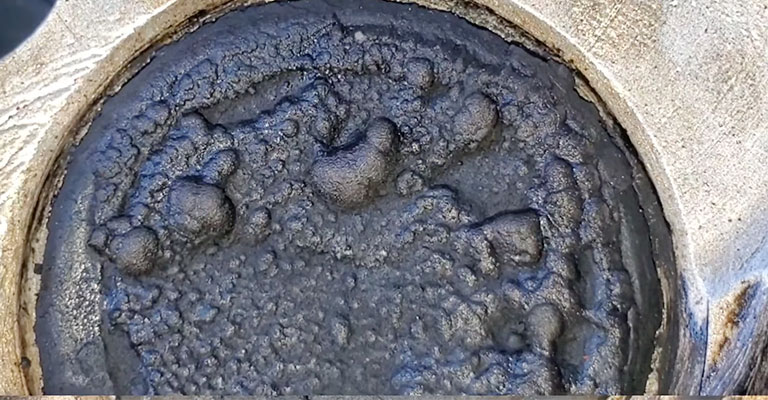
The most common reason for a knocking engine is excessive carbon buildup. As a car gets old, it starts to accumulate carbon buildup.
The black soot produced from incomplete combustion can harden engine components, which is detrimental to the engine.
This could lead to engine knocking, as well as difficulty in starting up the engine.
But once it starts up, the knocking sound goes away as oil circulates, and the engine gets lubricated.
Here’s how you can diagnose it −
- When draining the car’s engine oil, check for dirt/buildup in the drained oil.
- Depending on how dirty the drained oil is, you may choose to clean the engine by dismantling it entirely or by using a ‘Flush Oil’ instead.
- Generally, using a flush oil is the easiest way to clean carbon buildup. You’ll have to pour flush oil instead of engine oil and leave the engine running for about 10-15 minutes, then drain the flush oil completely.
- Replace the oil filter with a brand-new one and pour in your regular engine oil.
If your engine was knocking due to carbon buildup, the issue should be solved by now.
Oil Drain Back
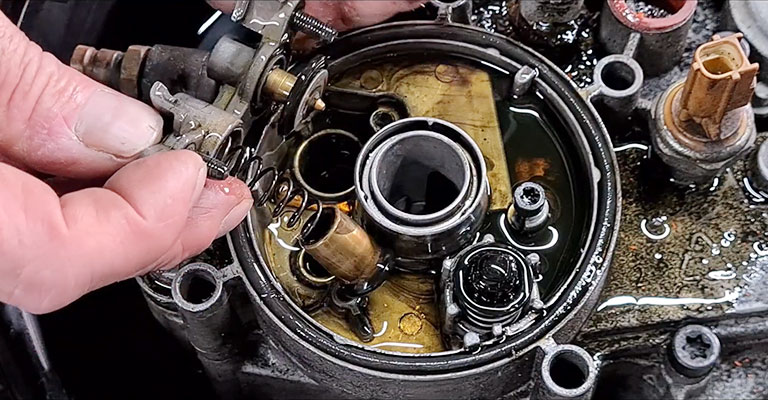
Another common cause of engine knocking is when oil drain back occurs.
This can happen for two reasons, a faulty check valve in the oil filter or a defective oil pan gasket.
An oil drain back occurs whenever engine oil is pumped into areas that aren’t supposed to handle oil. This also leads to a drop in oil pressure, which could lead to engine failure.
Fortunately, you can resolve this issue easily – all you’d have to do is check if the oil pan gasket is leaking and get it replaced, and get a high-quality oil filter.
Piston Slap
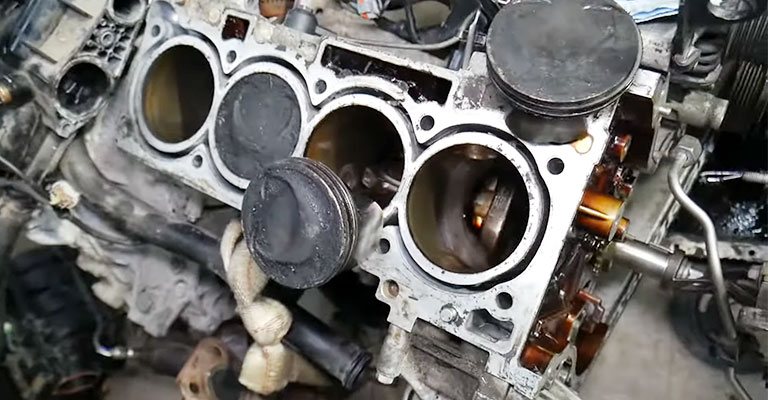
Piston slap is almost what the name suggests.
Usually found in engines with 1,50,000+ miles on them, a piston slap happens when a piston and its cylinder rock against each other at an angle instead of moving up and down smoothly.
It happens mostly due to wear and tear, which leads the piston and cylinder to have some clearance between each other.
Once the engine stays on for a while and heats up, the piston expands, and its clearance with the cylinder reduces. This makes the knocking noise go away.
Initially, piston slap won’t lead to engine failure, but it will damage the cylinder walls over time.
In most cases of piston slap, the engine must be rebuilt. This is an expensive procedure, and it requires an expert mechanic.
Only if you’re sure you can do it by yourself, here’s how you can diagnose the knocking sound of a piston slap −
Step 1 − Remove the cylinder head cover from the engine.
Step 2 − Take off the gaskets carefully. Just to be safe, have an extra set of gaskets for when you’ll re-assemble the engine.
Step 3 − Once you’ve gained access to the pistons and cylinders, crank the pistons with your hand and observe their movement.
Step 4 − Take out the pistons for further inspection. Notice if there are any dents/cracks in the cylinders, as well as on the pistons.
Step 5 − If you’ve confirmed that a piston or its cylinder wall is damaged, you’ll have to rebuild the engine.
If the piston movement is normal and nothing out of the usual, it’s not a piston slap that causes the knocking sound.
Sticky Valve Lifter
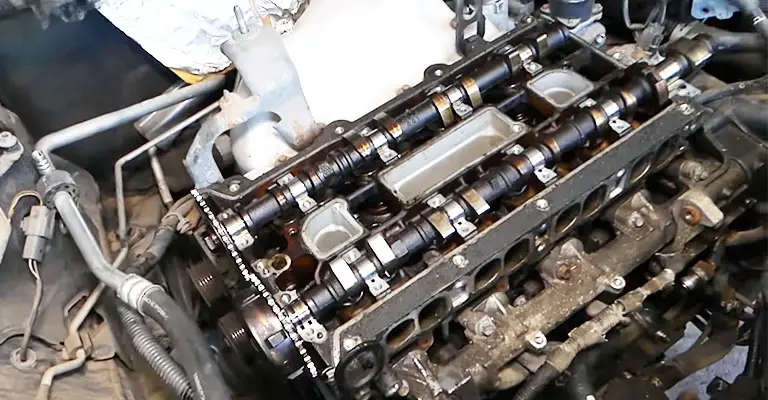
The sound produced by sticky valve lifters is often referred to as a knocking sound, but it is more of a ticking noise.
An engine could develop sticky valve lifters for several reasons – it depends on the type of engine oil, the quality of the oil filter, oil pump, cam positions, and even overall mileage.
If you’ve recently changed your car’s engine oil and used oil with more viscosity or higher weight, then that could be the cause of the noise.
On the other hand, a worn engine that has run for over 100,000 miles will have tolerance for shortfalls and gaps where the oil doesn’t reach. This could lead to mechanical sound as well.
But if the engine’s valve lifters are sticking and the time taken for the noise to disappear gets longer, you’ll have to replace the valve lifters entirely.
It is an expensive procedure, and you should rely on a professional mechanic.
But, If you decide to do it by yourself, make sure to replace all the lifters simultaneously.
Worn Out Components
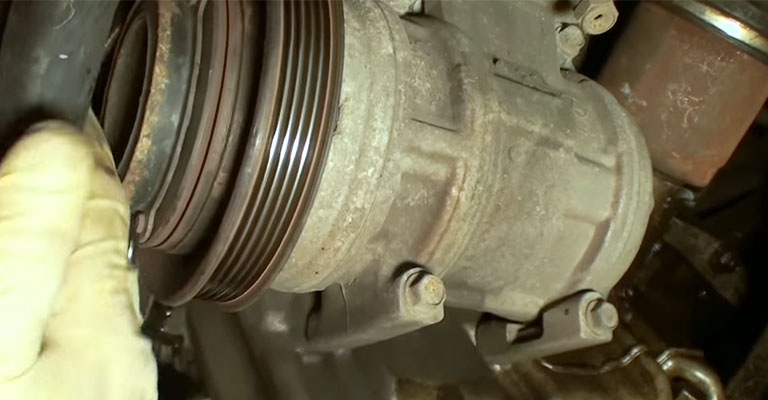
Having worn-out components such as a water pump, alternator, or power steering pump could lead to engine knock and sound.
Usually, the signs of a failing component are audible, but the noise soon goes away once the engine heats up.
For instance, components like the alternator, power steering pump, and water pump work with pulleys. If a bearing on one of these pulleys goes bad, it will make noises when the engine is started up.
But as oil circulates and the engine heats up, the bearings expand, and their operation gets smoother, so the sound goes away.
In order to get rid of these noises, you’ll have to get the vehicle checked for faulty accessories and components. It may become a hassle to do it, though.
You should always trust an expert for something as important as component replacement
Worn Out Main Bearing
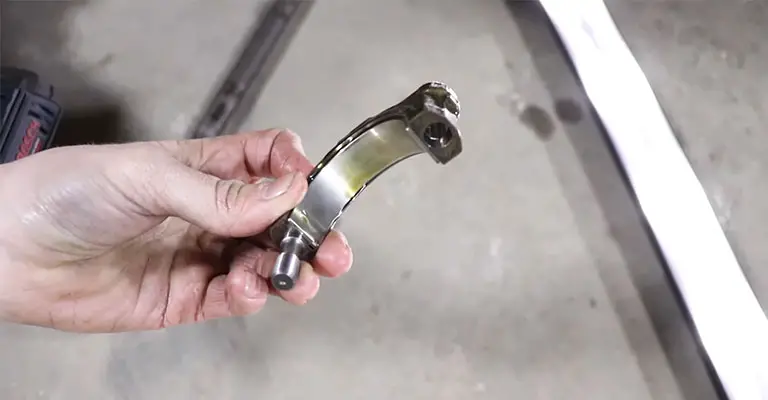
If the main crank bearing wears down, the crankshaft won’t have proper tolerance shortfalls. This will lead the crank to hit the bearing repeatedly for a few seconds until the tolerance gaps in the bearing fill up with oil.
It is not a major mechanical issue, and it’ll remain just a noisy disturbance until you get it fixed. Usually, it happens due to poor lubrication in the bearing area.
Until you’ve got a damaged bearing that causes a piston slap, there isn’t anything to resolve.
But here are some tips you can follow to prevent such issues −
- Open the engine head cover and examine the bearing for signs of wear.
- Inspect the crankshaft tolerance gaps and notice if there’s any deviation.
- See if the bearings are lubricated enough; poor lubrication could damage the bearings permanently.
Frequently Asked Questions
- How long will an engine last after it starts knocking?
If an engine starts knocking, its rod could break without prior warning. If you get lucky, it may take 6 months or more for the engine to blow, but it could also happen the next time you start up the engine.
- What are the symptoms of a rod knock?
The most common symptom of a rod knock is a ‘Knocking’ noise that sounds like metals clanking with each other. Moreover, the loudness of the sound will increase as you rev the engine higher.
- How do you extend the life of an engine with a rod knock?
A rod knock will continue causing damage to the cylinder walls and the engine itself. The only way to prolong an engine’s life, in this case, would be to rebuild the engine entirely.
- How can I make my engine sound quieter?
Here are a few tips to make your engine sound quieter −
- If you’re using mineral engine oil, switch to synthetic oil. Synthetic engine oils produce lower operation noise than mineral engine oils.
- Use fuel and engine oil additives to improve the overall performance of your engine, as well as to reduce wear on mechanical components
- Change engine oil and oil filters regularly to prevent components from wearing out too soon.
- Soundproof the interior cabin and engine compartment.
- Is thicker oil better for the engine?
Unless you’re using engine oil with thicker viscosity than what the manufacturer recommends, the engine will be fine. In general, thicker engine oils provide better lubrication between mechanical parts.
- Does engine knock cause damage?
Engine knocks can cause damage to pistons, their cylinder walls, and even crankshaft bearings. In brief, engine knocking can lead to damages that get really expensive to repair. In worst case scenario, the engine may blow.
- Will engine oil knock go away?
Pouring more oil into the engine will reduce the operation noise, but it won’t solve the actual cause of the noise.
- Can bad spark plugs cause engine knock?
Yes, bad spark plugs will cause incomplete combustion as the fuel won’t be ignited completely. When vapor and fuel don’t ignite properly, they will detonate shortly. This can cause a knocking sound in engines.
Final Thoughts
With all of that being said, you should know what to do the next time you ask yourself why your engine knocks on startup and then goes away.
Although the noise could be from a simple issue, engine knocking could potentially lead to a blown engine. Therefore, you should try getting it fixed as soon as possible.
Leave a Reply